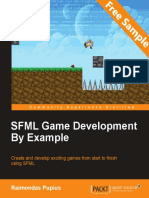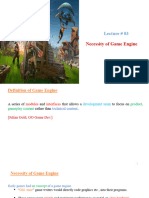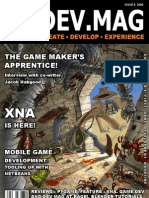0% found this document useful (0 votes)
113 views10 pagesC++ Game Development
Game development involves creating video games by integrating graphics, sound, gameplay mechanics, and AI, requiring programming and creativity. Key components include the game loop, graphics rendering, user input, physics engine, AI, and sound. The development pipeline consists of concept planning, design, programming, testing, and release, utilizing various programming languages and game engines like C++, Unity, and Unreal Engine.
Uploaded by
Ir AzlanCopyright
© © All Rights Reserved
We take content rights seriously. If you suspect this is your content, claim it here.
Available Formats
Download as PDF, TXT or read online on Scribd
0% found this document useful (0 votes)
113 views10 pagesC++ Game Development
Game development involves creating video games by integrating graphics, sound, gameplay mechanics, and AI, requiring programming and creativity. Key components include the game loop, graphics rendering, user input, physics engine, AI, and sound. The development pipeline consists of concept planning, design, programming, testing, and release, utilizing various programming languages and game engines like C++, Unity, and Unreal Engine.
Uploaded by
Ir AzlanCopyright
© © All Rights Reserved
We take content rights seriously. If you suspect this is your content, claim it here.
Available Formats
Download as PDF, TXT or read online on Scribd
/ 10


























































































